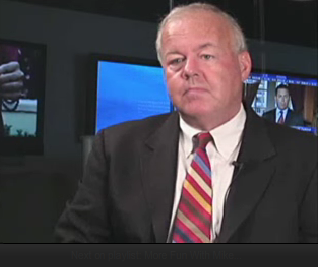The iPhone Exodus
With any luck, I'll be swapping out my Nokia N95 with an iPhone tomorrow. Rather than fight the mass crowds at the Apple store, I am likely to just hit the local AT&T store. I have some trepidation as the store seems very unprepared for the launch. As of today, the store I plan on going to had no protocol for how they would handle lines, whether they would hand out vouchers (so people don't stay in line with no chance of an iPhone), and how existing customers can transfer their accounts. The focus really seems to be on getting new customers, which is a shame given I have been with AT&T (then Cingular, now AT&T again) for about 8 years.
Having used the N95 for several months, here are some more thoughts about the phone:
1) Bluetooth with my car, computer and headsets still works flawlessly. Something I hope the iPhone will match.
2) The media player is frustratingly slow and the quality is good, but not excellent.
3) Moving songs over via USB is the worst experience I have had on a portable device. If I try and move more than 4 songs, the device hangs and I must go delete the empty files off the device's SD card and start again. After each file transfer it resets, requiring me to browse back to my music director in Finder every time. As a result, it took me 45 minutes to move 1.5g of music the other day. Completely unacceptable.
4) Accessing WAPs is tolerable, but not a friendly experience. To date, I've still never gotten it on a WPA2 network.
5) The web browser is basically useless. The only site I use it for is mobile bloglines.
6) The phone quality is excellent. Best signal and voice quality of any phone I have ever used.
Now that the reviews of the iPhone are rolling in, I am excited to check it out. Of the "missing" features, everyone is complaining about, the only thing I really expect to miss is the lack of a chat application. I am hoping that Meebo will work, but the watered down Safari browser may not be able to handle it.
Total Intel on Homeland Defense Weekly podcast

Dan Verton's Homeland Defense Weekly interviewed some of the leadership team at Total Intel during our open house this week and the result has been posted as a podcast and webcast on the PodTech Network. Link--->
Second Life Hawala
“I see this as a virtual version of the hawala or hundi system,” said Johnson, who heads risk management firm TRMG, referring to the informal money transfer network that is commonly used through the Middle East, Asia and Africa.
“It’s trust based — I give you 1,000, you give someone else 1,000 — it serves to move money from A to B to C to D while obscuring the trail.” Link --->
We're already living in a future nobody anticipated
Science fiction authors are some of the most interesting people to watch with regards to futurism in the unparalleled completely unstructured sense. Charles Stross is no exception. Worth a read if you've got 10 minutes to spare today.
Total history — a term I'd like to coin, by analogy to total war — is something we haven't experienced yet. I'm really not sure what its implications are, but then, I'm one of the odd primitive shadows just visible at one edge of the archive: I expect to live long enough to be lifelogging, but my first forty or fifty years are going to be very poorly documented, mere gigabytes of text and audio to document decades of experience. What I can be fairly sure of is that our descendants' relationship with their history is going to be very different from our own, because they will be able to see it with a level of depth and clarity that nobody has ever experienced before.
Meet your descendants. They don't know what it's like to be involuntarily lost, don't understand what we mean by the word "privacy", and will have access (sooner or later) to a historical representation of our species that defies understanding. They live in a world where history has a sharply-drawn start line, and everything they individually do or say will sooner or later be visible to everyone who comes after them, forever. They are incredibly alien to us. Link --->
Lions and tigers and terrorists....oh my!
Thanks for Haft of the Spear for the link.
Steven Phillipsohn, a fraud litigation solicitor and chairman of the FAP's cybercrime working group, said: "There's nothing virtual about online crime, it is all too real. It is time government took this seriously.
"The legitimate benefits of virtual communities will prove enormous, but people need to be aware that this cutting-edge technology has a darker side.
"Money laundering is the obvious risk. There will be a migration of fraudsters into these sites when they see all of the opportunities." Link --->
Think Different - The Reading List
In my home office, I have a preserved set of the Apple Think Different poster series as inspiration, but I realized that I did not have any books on my bookshelf about the individuals honored in this advertising campaign.
I put together this list at Amazon for the Think Different series which I plan to read in these chairs that sit under my poster collection.

Is this the VA Tech Shooter?
Early leads are pointing to this page as the alleged shooter for today. Either they are right, or this poor guy is about to go through media hell.
Update: A new posting says he is not the shooter, was going to wait until he got adsense on his site, but couldn't wait.
School shootings again
If you missed it the first time, this analysis is still worth checking out....Link--->
This week always worries me:
April 19 - Waco anniversary
April 19 - OKC bombing
April 20 - Colombine shooting
Bruce Sterling and William Gibson as Interpreted by the Brits...
I honestly believe that science fiction can provide some reasonably provocative insights into the future. It was William Gibson, after all, that gave us the term cyberspace. I also spend a lot of time thinking about emergent and disruptive technologies, which is why I've included a section on "Flash Mobs" in my briefings for four years.
It shouldn't be surprising that I found this article of great interest:
Information chips implanted in the brain. Electromagnetic pulse weapons. The middle classes becoming revolutionary, taking on the role of Marx's proletariat. The population of countries in the Middle East increasing by 132%, while Europe's drops as fertility falls. "Flashmobs" - groups rapidly mobilised by criminal gangs or terrorists groups.
This is the world in 30 years' time envisaged by a Ministry of Defence team responsible for painting a picture of the "future strategic context" likely to face Britain's armed forces. It includes an "analysis of the key risks and shocks". Rear Admiral Chris Parry, head of the MoD's Development, Concepts & Doctrine Centre which drew up the report, describes the assessments as "probability-based, rather than predictive". Link --->
It looks like one of the only thing they are missing (at least in the news summary) is an acknowledgment of the declining role or nation states (in favor of alignment with corporate entities), a stronger look at issues of the singularity, and the U.S. continued dominance in software coding and high speed pizza delivery.